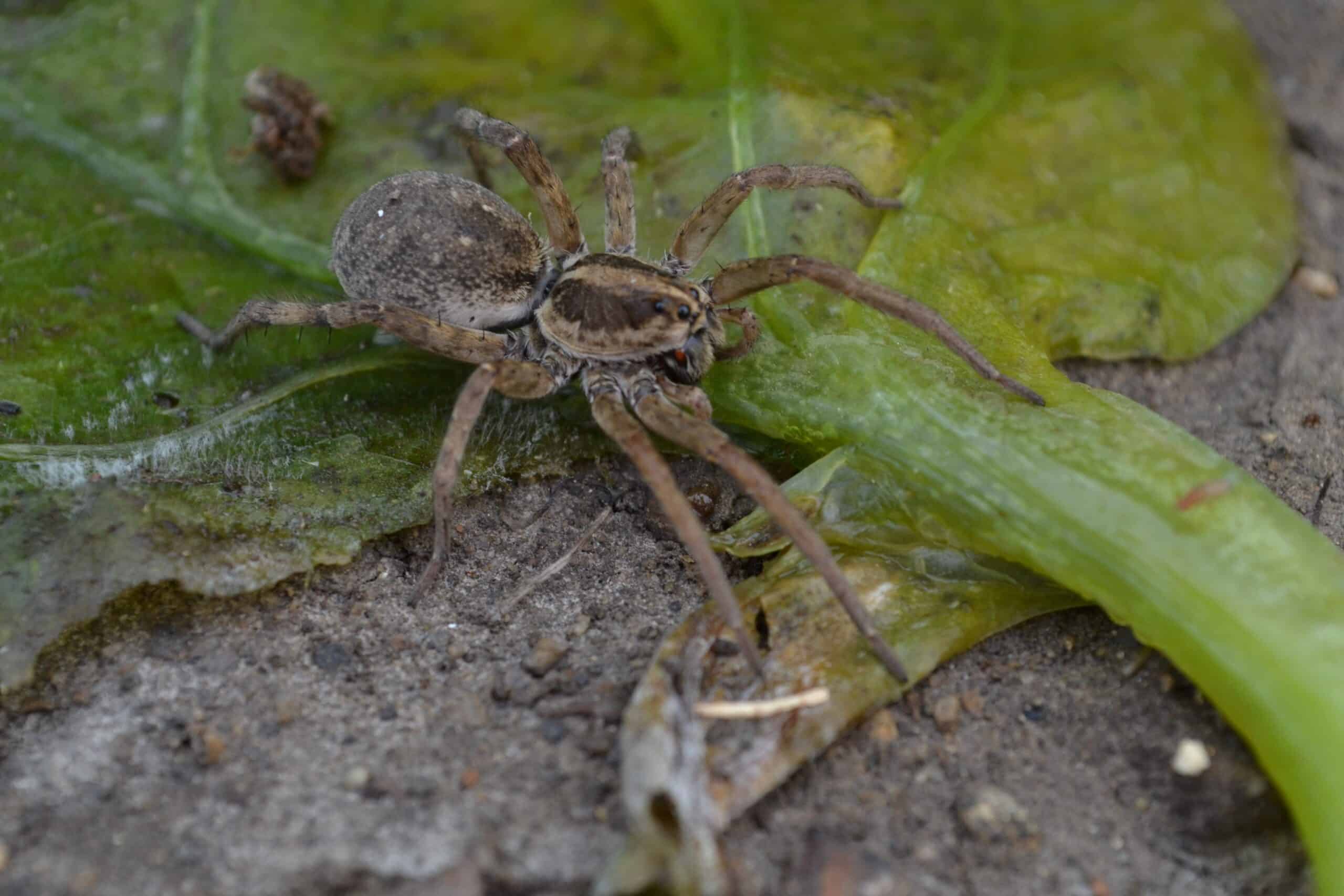Thousands of bugs live in Kentucky and some of them are likely to try to invade your home. While some of them will be nothing more than an annoyance, others can be potentially harmful to you, your family, your pets, or your property. What can you do to get rid of and prevent these bugs from entering your home?
Familiarizing yourself with the common house bugs in Kentucky can help you get rid of any bugs that have found their way inside your home. It can also help you prevent a pest infestation in the first place.
Continue reading to learn about Kentucky house pests and tips on how to deal with them.
Common House Bugs in Kentucky
From the thousands of bugs that can be found in Kentucky, most will never bother you. But others, such as cockroaches and termites can get inside your home and cause damage to your property, while other types of bugs, such as wasps can be a threat to your and your family’s safety.
How you deal with the bugs depends on the species. Some are easy to get rid of yourself, while others may require you to contact your local pest control professionals. To help you assess the situation and how to best handle it, we have included tips on how to get rid of the different bugs below.
1. Bed Bugs
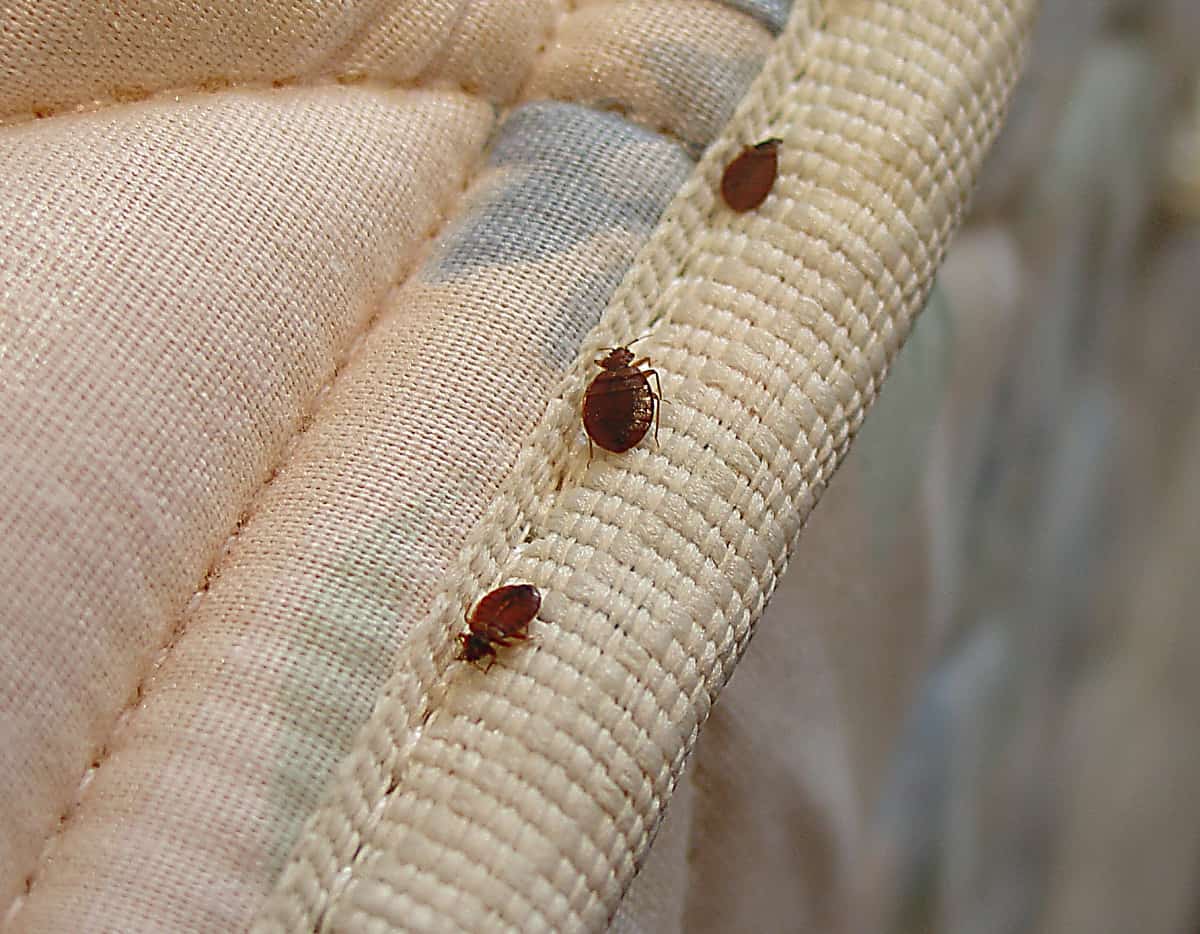
Image Credit: wanderwisdom
To call these pests bed bugs is misleading since they can invade more than the bedding in your home. They can live on walls, wooden furniture, floors, wall hangings, and any soft furnishings. Bed bugs can bite you and leave you itching. In some people, a bed bug bite can cause an allergic reaction.
It is incredibly easy to get bed bugs in your home. For example, they can hide in a second-hand piece of furniture you bought, they might have got in your luggage in a hotel room, or stuck to your clothes from a chair you sat in a public space. Once inside your home, they will start to breed.
- How to Get Rid of Bed Bugs
The number one method to get rid of bed bugs is vacuuming. Ensure that you get into all the seams of the mattresses when using a vacuum cleaner to get rid of bed bugs and their eggs. Other methods include steam cleaning, tumble drying your bedding and clothes, and making a spray with smells the bugs hate, such as lavender.
2. Clothes Moths
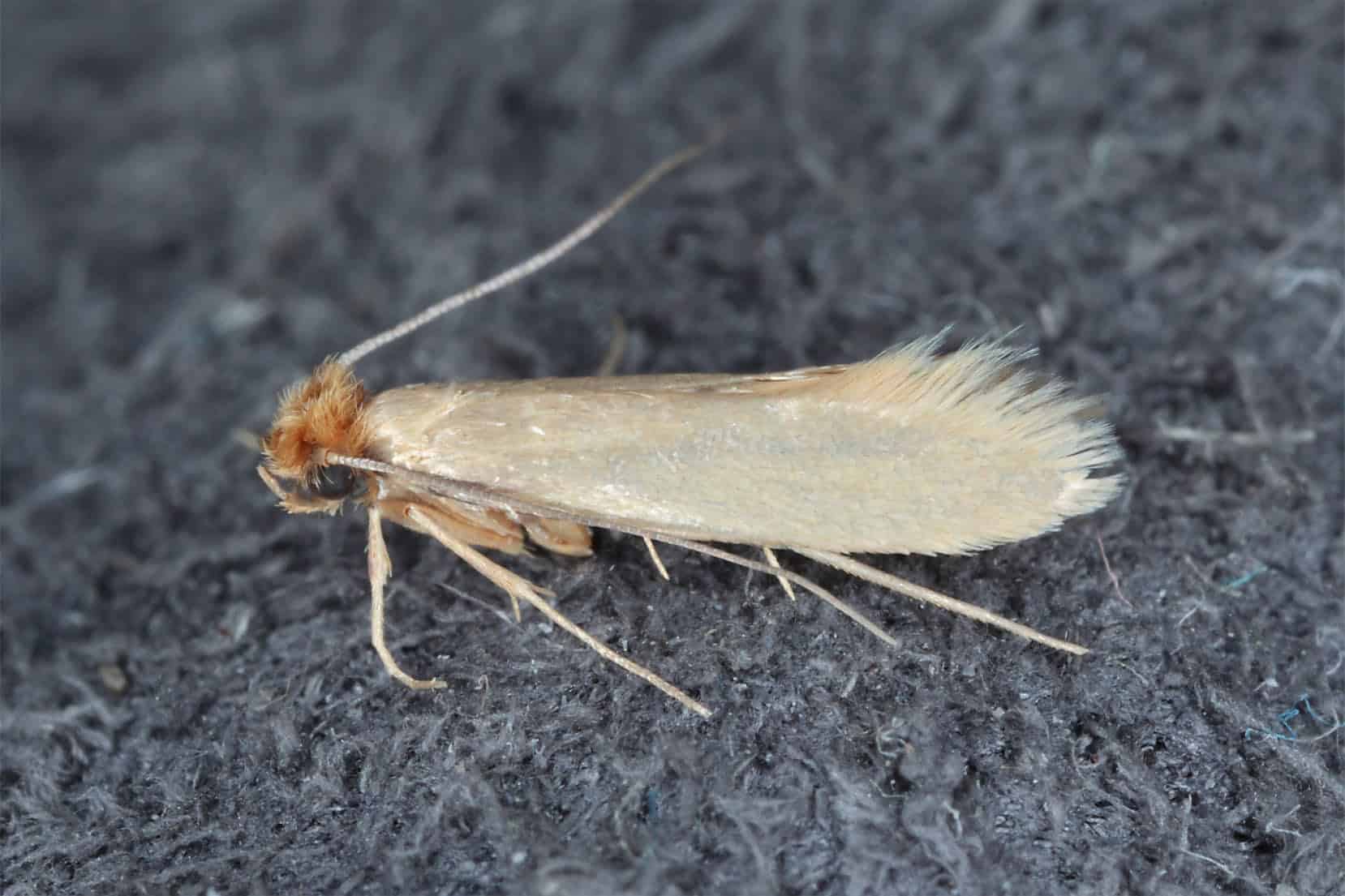
Image Credit: safeguardeurope
It is not the adult clothes moths that cause the damage but the larvae. The larvae will feed on your clothes, in particular silk, woolen, and cotton garments. However, they will also eat felt, feathers, fur, and hair. When it has matured, it will stop feeding and find a place to pupate.
Clothes moths are not harmful to people but the larvae will leave holes in your clothes as they chew through the fabric. As well as clothing, the moth larvae can feed on upholstered furniture.
The clothes moths seldom lay their eggs on items that are in regular use so you may not notice you have an infestation until you, for example, take a jumper out of summer storage.
- How to Get Rid of Clothes Moths
To prevent clothes moths from destroying your garments, use cedar oil. Dilute some cedar oil with water in a spray bottle or use a diffuser that spreads the scent around your home. The moths, and many other insects, too, are repelled by the smell of cedar. You can also use herbs that repel them, such as cloves, thyme, and rosemary.
3. Cockroaches

Image Credit: foxnews
Cockroaches are adaptable and resilient and can make any part of your house their home. They don’t need open doors or windows to find their way in. Often, they will enter your home through the drains. They carry pathogens, spread diseases, and damage your belongings as they feed on anything from your wallpaper to the rugs on your floors.
You are unlikely to know you have cockroaches in your home because they are nocturnal bugs hiding in drainpipes and cracks during the day. Common cockroach species in Kentucky include the American cockroach, German cockroach, and Oriental cockroach.
- How to Get Rid of Cockroaches
There are several DIY methods to get rid of cockroaches. You can mix sugar with borax and spread the paste where you have noticed the cockroaches. Another option is to make a spray using peppermint oil or lemons.
Cockroaches, and several other bugs, hate these smells so spraying it in areas they might use to enter your home will keep them away.
4. Ticks
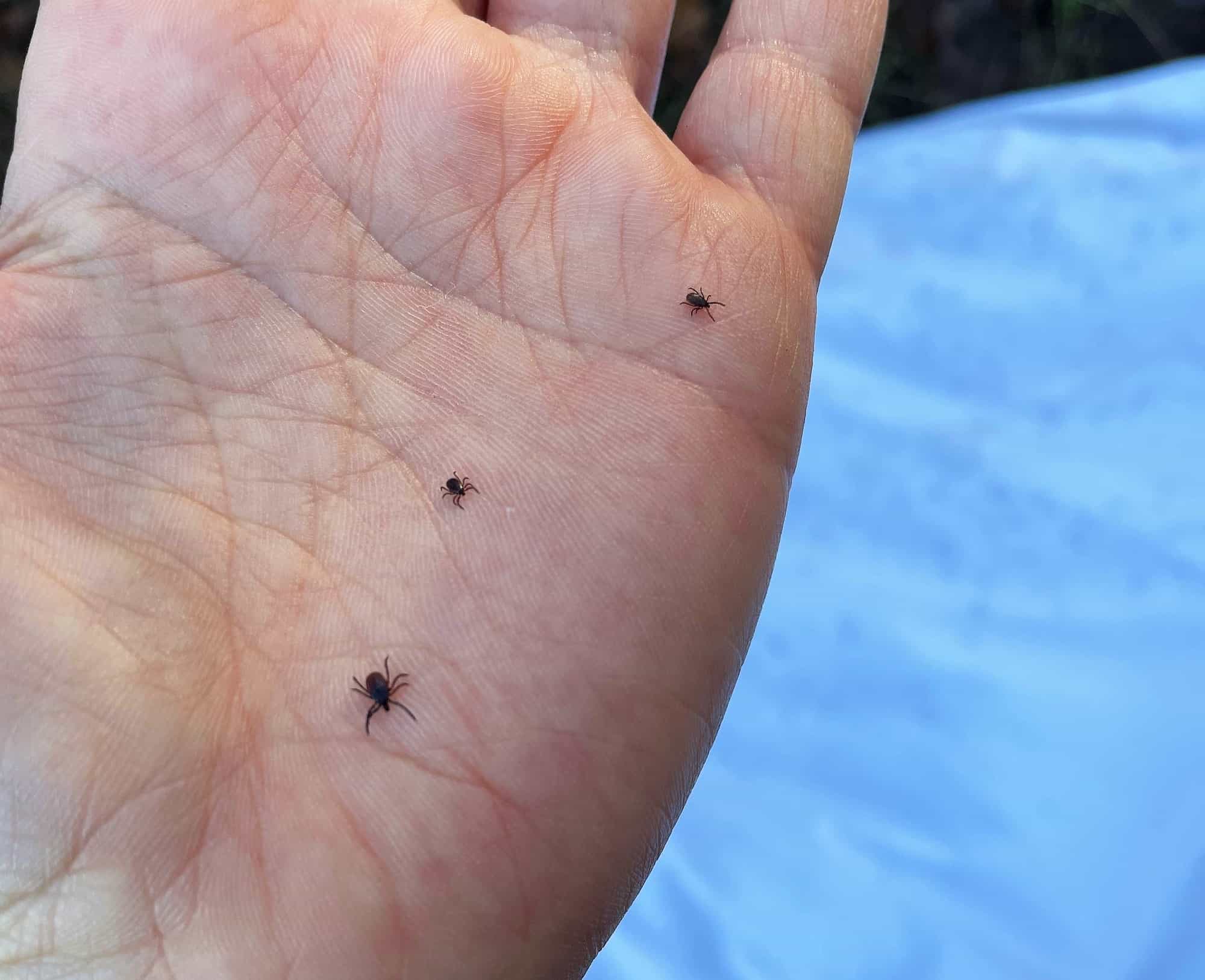
Image Credit: msmosquito
Ticks are parasitic pests that feed on the blood of mammals, birds, amphibians, and reptiles. They can spread serious diseases and cause allergies or anemia. Ticks live in fields and woods and can attach themselves to you, your family, or your pets.
When you, members of your family, or your pets have passed through an area where ticks are likely to hide, check everyone carefully for ticks. If you find a tick attached to your body, it is best to seek immediate medical attention because of the dangerous disease it can carry. You also need to dispose of the tick properly.
- How to Get Rid of Ticks
The best way to deal with ticks is to be vigilant. Ticks need to stay attached for a minimum of 36 hours to cause damage. When checking yourself or others for ticks focus on the backs of the knees, underarms, between the legs, and around the waist. Check your clothes, too, and inspect your pet’s fur.
You can also take measures to prevent ticks from attaching themselves to you. Wear clothing that covers your skin, especially if walking through long grass or near shrubs. Consider spraying your clothes with a tick-repellent product. Wearing light clothing can also be helpful as it makes it easier to spot ticks because they are dark.
5. Wasps
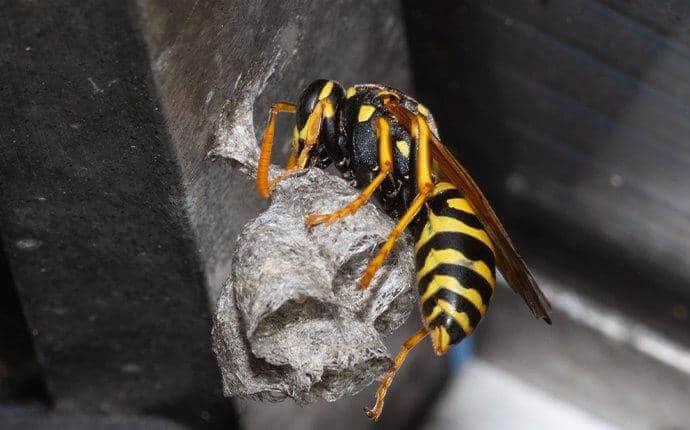
Image Credit: romneypestcontrol
There are different species of wasps found in Kentucky including paper wasps, yellow jackets, hornets, and mud daubers. Paper wasps and mud daubers are rarely aggressive and only tend to sting when threatened. Yellow jackets and hornets are more aggressive and can sting you repeatedly.
Wasp stings are not only painful but can cause an allergic reaction, which in some people could be life-threatening, especially if stung multiple times. You do not want wasps to build a nest in or near your home since this could increase the chance of them attacking you, your family, or your pets.
- How to Get Rid of Wasps
While it is easy enough to get rid of a singular wasp that has entered your home, dealing with a wasp nest is trickier. There are ways to get rid of wasp nests yourself using pesticide spray or insecticidal dust.
However, if the nest is in a tricky spot or you do not feel confident in dealing with it, it is best to contact a professional to avoid any injury.
6. Wolf Spiders
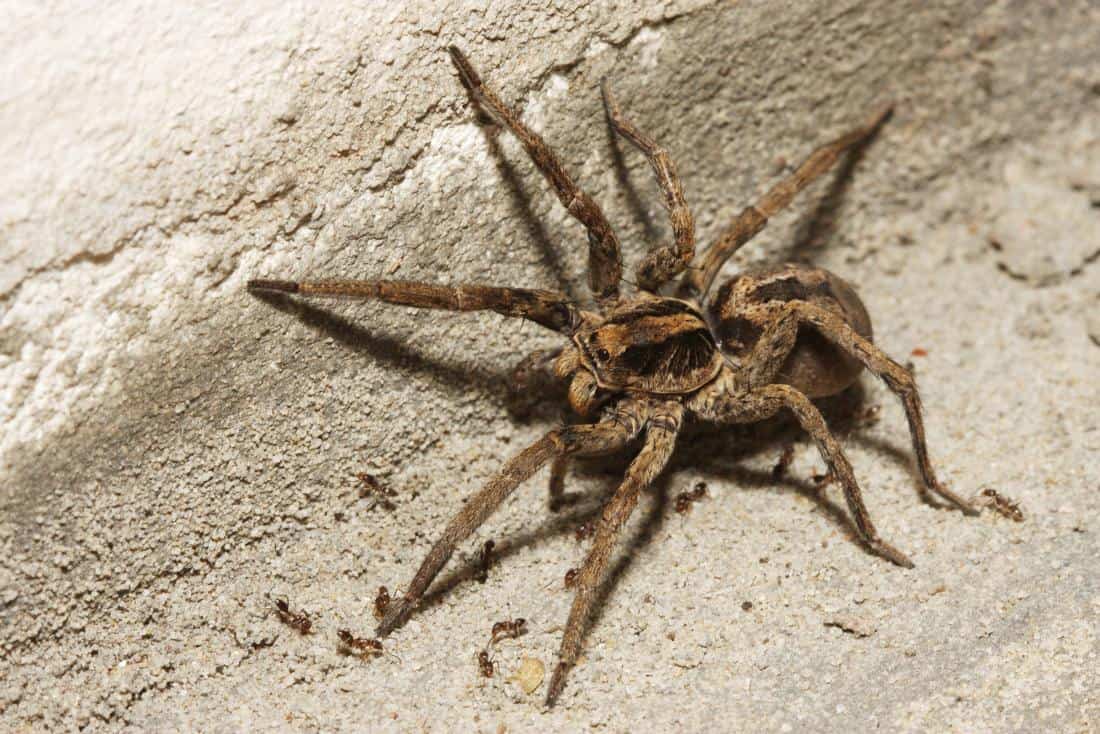
Image Credit: medicalnewstoday
Wolf spiders are common in Kentucky, especially in the western parts of the state. They are a large spider species and can grow up to three inches. You can identify the males from the females because they have longer legs.
Wolf spiders are not dangerous and can be beneficial to have around your home because they eat bugs such as cockroaches and flies. If you were to get bitten by a wolf spider, it will feel similar to a bee sting, but its venom will not cause you any other harm.
- How to Get Rid of Wolf Spiders
While wolf spiders are harmless and even helpful, many people hate spiders and will not want any type of spider in their homes. You can make a spider-repellent spray using smells they hate, such as cinnamon, cedar, peppermint, and tea tree. Mix with water and spray in areas spiders could use to enter your home.
7. Rodents

Image Credit: britannica
While rodents such as mice and rats are not house bugs, they are still common pests in Kentucky. In your home, they seek, for example, crawl spaces and wall cavities to create a nest. Signs of rats or mice in your home include droppings, gnaw marks, food stashes, noises from inside the walls, and an ammoniac urine smell.
While rats and mice are not aggressive and will avoid contact with you, they can carry diseases. These diseases can be transmitted to people from their droppings, urine, and dead rodents, which is why you should never handle dead or live rodents with bare hands.
- How to Get Rid of Rodents
Since you might not even notice you have rodents in your house because they prefer to come out at night, prevention is the best action against rodents. Inspect your home for any cavities and fill them in. Seal entrances they can use to gain entry. You can also use an electronic rodent deterrent or get a cat to keep them away from your premises.
Conclusion
When you are dealing with common house bugs in Kentucky, prevention is often the best policy. Keep your house clear of clutter, discard uneaten foods quickly, use repellent sprays (shop-bought or homemade), and be vigilant to any signs of bites or infestations.
If any of these pests get inside your home or make a nest just outside, assess the situation carefully. Depending on the situation, you may be able to deal with the issue safely and effectively yourself, otherwise, get the professionals in.
